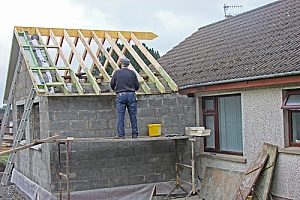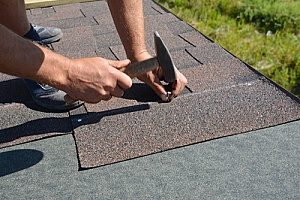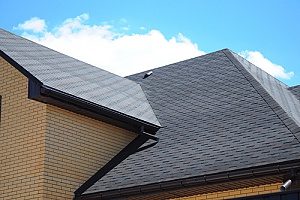 As a consumer, you want the peace of mind that comes with knowing your home is in good hands. However, even the best Northern Virginia roofing contractors can make mistakes. A workmanship warranty acts as a safeguard for homeowners who want reassurance that if anything goes wrong following a roof repair or replacement, the issue will be remedied. While having a workmanship warranty can be invaluable, some warranties can be misleading. It’s important to know what your warranty covers and the time frame in which the warranty is valid.
As a consumer, you want the peace of mind that comes with knowing your home is in good hands. However, even the best Northern Virginia roofing contractors can make mistakes. A workmanship warranty acts as a safeguard for homeowners who want reassurance that if anything goes wrong following a roof repair or replacement, the issue will be remedied. While having a workmanship warranty can be invaluable, some warranties can be misleading. It’s important to know what your warranty covers and the time frame in which the warranty is valid.
What Is a Workmanship Warranty?
Your roof is one of the most important components of your home. A new roof is also a major investment. As you want your roof to last at least 20-plus years, take the time to find reputable Northern Virginia roofing contractors who offer a workmanship warranty on their roofing installation and replacement services. A workmanship warranty, also known as a labor or craftsmanship warranty, is a guarantee provided by a contractor regarding the quality of the work or craftsmanship involved in a project. This type of warranty assures the customer that the work performed meets certain industry standards and will be free from defects related to the quality of the labor for a specified period.
What Does a Workmanship Warranty Cover?
A workmanship warranty typically covers defects or issues related to the quality of labor or craftsmanship involved in a project. The specific coverage can vary depending on the terms and conditions outlined by the contractor. However, common elements covered by a workmanship warranty may include:
- Defective Workmanship: The warranty typically covers issues arising from mistakes, errors, or substandard craftsmanship in the construction, installation, or manufacturing process.
- Materials and Installation: If the contractor supplied materials as part of the project, the warranty may cover defects in these materials as well as issues related to their installation.
- Structural Integrity: Workmanship warranties for construction projects often cover the structural integrity of the work performed, ensuring that the project will meet applicable building codes and standards.
- Repair or Replacement Costs: If defects covered by the warranty are discovered within the specified warranty period, the contractor or manufacturer is usually responsible for repairing or replacing the faulty work or product at no additional cost to the customer.
Before accepting a workmanship warranty, be sure to read through the document to check what it covers and what limitations exist. While you ideally want your warranty to cover everything, that’s not always realistic. Know that the length of the warranty should not be the primary factor when choosing a roofing product as long-term warranties are not always better than shorter ones. Find a contractor that offers a workmanship warranty that covers a wide range of common issues, such as leaks. Note that many contractors will only cover repairs up to a certain amount.
How Does It Differ From a Manufacturer Warranty?
 There are two main types of warranties that you will come across when undergoing roof replacement. These include workmanship warranties and manufacturer material warranties. Having both types of warranties can provide you with comprehensive coverage. What makes these two warranty options different is what they cover. While a workmanship warranty generally covers the work performed by the contractor, including any installation errors, a manufacturer warranty usually covers the materials themselves. Manufacturer material warranties often range 10 to 30 years and cover failures or defects of roofing materials due to premature aging or manufacturing defects.
There are two main types of warranties that you will come across when undergoing roof replacement. These include workmanship warranties and manufacturer material warranties. Having both types of warranties can provide you with comprehensive coverage. What makes these two warranty options different is what they cover. While a workmanship warranty generally covers the work performed by the contractor, including any installation errors, a manufacturer warranty usually covers the materials themselves. Manufacturer material warranties often range 10 to 30 years and cover failures or defects of roofing materials due to premature aging or manufacturing defects.
Why Is a Workmanship Warranty Important?
When a disaster occurs, many homeowners are in a rush to get their roof repaired. Due to the urgency of the situation, warranty details are often overlooked. When an unexpected problem develops in the days, weeks, or even years to come, some homeowners are disappointed to find out that their warranty will not cover the repairs or material replacement. That’s why it’s important to have a workmanship warranty and to work with Northern Virginia roofing contractors that you can trust to provide high-quality, honest services.
As not all roofing warranties offer the same level of service, it’s important to review the terms and conditions and talk directly to your contractor about any concerns you may have. One of the first things you should look for is the coverage period. Opt for the longest warranty coverage you can afford without sacrificing other important factors, such as the use of premium materials and highly skilled workers. Also, look at the list of circumstances that could possibly void the warranty. For example, if you do not conduct regular roof maintenance, your warranty may be void in the eyes of a roofing company.
Some homeowners think they can get by with just a manufacturer warranty alone. It’s important to understand that while a manufacturer warranty will generally cover the materials used during construction, it does not cover the actual work performed by the contractors. How your roof is installed affects its appearance, function, and life span. If you fail to acquire a workmanship warranty, you could face a number of consequences later on if a problem related to installation occurs. As installation errors are not the fault of the manufacturer, you could be stuck paying the entire repair bill.
What Else Should I Know About Workmanship Warranties?
 When undergoing a roof repair or replacement, be sure to keep all of the documentation related to your warranty in a safe place. If you need to make use of your warranty later on, you will need these documents to prove to the manufacturer or contractor that your home is covered. If you fail to produce the proper documentation, there may not be sufficient evidence to prove that you purchased the products or services. Also, take notice of the notification period of the warranties. The notification period refers to the time limit in which you must notify the manufacturer or contractor if there’s a problem.
When undergoing a roof repair or replacement, be sure to keep all of the documentation related to your warranty in a safe place. If you need to make use of your warranty later on, you will need these documents to prove to the manufacturer or contractor that your home is covered. If you fail to produce the proper documentation, there may not be sufficient evidence to prove that you purchased the products or services. Also, take notice of the notification period of the warranties. The notification period refers to the time limit in which you must notify the manufacturer or contractor if there’s a problem.
Before signing a warranty for your roofing product or service, ask your contractor several important questions, such as:
- What type of roof warranty am I receiving? Workmanship or manufacturer?
- What is the term or time frame of the warranty?
- What type of circumstances could possibly void my warranty?
- What types of damage does a standard roof warranty cover?
- What types of damage does a standard roof warranty not cover?
- Does the warranty cover indoor damage too?
- What are my responsibilities for maintaining my roof warranty?
Learn More About Workmanship Warranties
When it comes to roof warranties, no two contracts are the same. However, there is a big difference between a workmanship warranty and a standard manufacturer’s warranty. In reality, there is a small likelihood of a roofing material failure. Most times, roofing problems occur due to an installation error. That is why having coverage for workmanship is a must. Of course, working with a reliable and reputable roofer can make all the difference in your experience.
To learn more about how workmanship warranties work or to schedule a free roof evaluation, contact the expert Northern Virginia roofing contractors at Beyond Exteriors today.